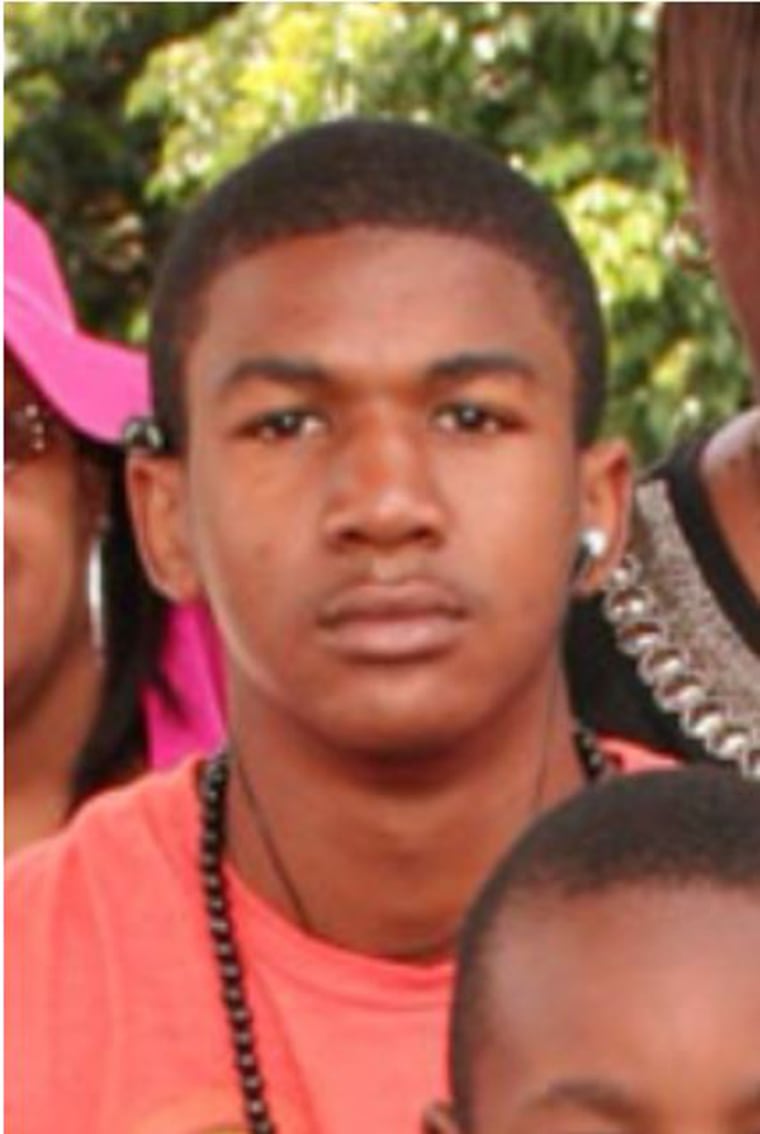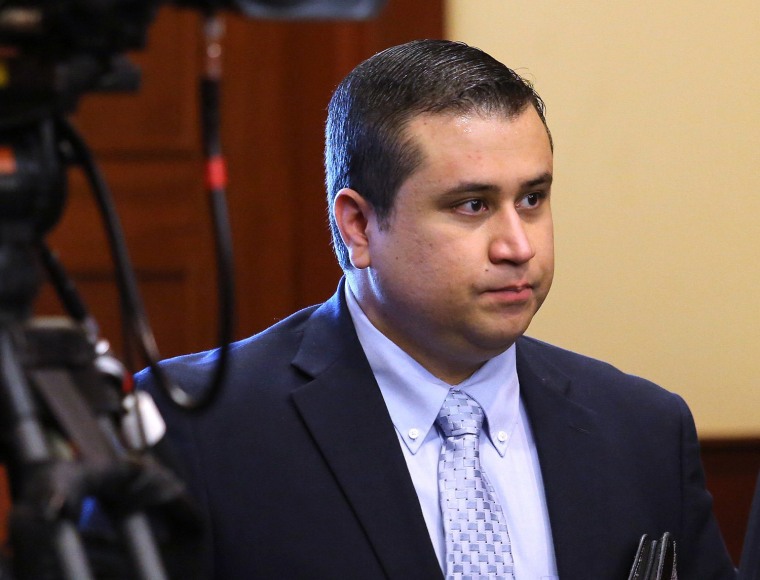The jury in the George Zimmerman trial deliberated for a second day Saturday with no indication of how long they might take to reach a verdict in the death of Trayvon Martin.
After three and a half hours of deliberations on Friday, jurors asked to break for the night and start talking again in the morning. Deliberations have been ongoing since Saturday morning.
The jurors have been asked to decide if Zimmerman – who says he shot Martin in self-defense -- is guilty beyond a reasonable doubt of second-degree murder or manslaughter or not guilty.
There have been only two communications from the six women on the panel since they were handed the case Friday afternoon.
Just before 6 pm on Saturday, jurors asked for clarification on instructions regarding the manslaughter charge.
On Friday, they requested a number list of all the evidence with descriptions.
Zimmerman, 29, who pleaded not guilty to second-degree murder, says he shot Martin, 17, when the teen attacked him after they crossed paths Feb. 26, 2012, in a gated community of Sanford, Fla. Martin was unarmed.
In closing arguments Thursday and Friday jurors heard the prosecution and the defense paint starkly different versions of what happened on that dark rainy night.
Defense lawyer Mark O’Mara told jurors Zimmerman is “not guilty of anything but protecting his own life,” while prosecutor John Guy asked the panel: “Did he have to shoot Trayvon Martin? No, he did not.”
O’Mara told jurors that the prosecution had failed to meet its burden of proof.
Zimmerman was “the victim,” whose head was slammed into concrete, he said after hauling a piece of concrete to the front of the courtroom.
“That’s cement. That is a sidewalk. And that is not an unarmed teenager with nothing but Skittles trying to get home,” O’Mara said.

“The suggestion by the state that that’s not a weapon, that that can’t hurt somebody, that that can’t cause great bodily injury … is disgusting.”
Although witnesses have testified that Zimmerman’s injuries from the altercation were minor, O’Mara showed a photo of his client bleeding after the altercation and said if Martin had survived, he would have been charged with a crime.
“You can’t look at those pictures and say what was visited upon George Zimmerman was not evidence of ill will, spite and hatred,” O’Mara said.
In his rebuttal, Guy showed photographs taken later that night after Zimmerman had cleaned up and did not look as battered.
“If his head had been slammed into something like this, bashed over and over,” Guy said of the concrete, “he wouldn’t look like he did in those photographs.”
Prosecutors contend that Zimmerman, a neighborhood watch volunteer, profiled and followed Martin even after a police dispatcher he called to report a suspicious person told him he didn’t need to.
O’Mara said that prosecutors had offered no proof that Zimmerman tailed Martin as he returned from a trip to a 7-Eleven to buy Skittles and a juice drink.
“Evidence seems to support that George is heading back to his car, and they don’t have one shred of evidence to suggest otherwise,” O’Mara said.
He showed jurors a timeline of the night that he said illustrated Martin had plenty of time to get home if that’s what he wanted to do.
In a dramatic moment, O’Mara asked the panel to sit still for a time, and silence descended on the courtroom as a clock ticked off four minutes.
“That’s how long Trayvon Martin had to run,” the lawyer then told them.
“The person who decided that this was going to continue, that it was going to become a violent event, was the guy who didn’t go home when he had the chance to,” O’Mara added. “It was the guy who decided to lie in wait.”
Guy retorted, “Four minutes is not the amount of time Trayvon Martin had to run home. Four minutes is the amount of time Trayvon Martin had left on this earth.”

“That child had every right to be where he was,” Guy said. “That child had every right to do what he was doing, walking home. That child had every right to be afraid of a strange man following him, first in his car and then on foot.
“And did that child not have the right to defend himself from that strange man?”
The prosecution had ended its statement on Thursday by asking jurors to think about an autopsy photo of Martin, the last one ever taken of him.
O’Mara told them that photo was not an accurate portrayal of Martin because he had lost half his blood, looked “emaciated” and had no muscle tone.
Instead, he showed them a photo of Martin bare-chested, wearing a baseball hat, taken three months before his death.
He also displayed a photo that showed how dark it was in the area when Martin and Zimmerman began grappling.
“All I know is that when George Zimmerman is walking back to his car, out of the darkness -- be it bushes or darkness or left or behind or somewhere --Travyon Martin came towards George Zimmerman … and we know what happened,” O’Mara said.
Repeatedly throughout his closing, O’Mara repeated an assertion by the state and sarcastically punctuated it with “Really?” or “Seriously?”
He needled prosecutors for using loud voices when they repeated Zimmerman’s words – “F---ing punks” and “a--holes” – from his call to the police dispatcher.
He questioned the credibility of several prosecution witnesses, and said over and over that prosecutors had not backed up their version of events with evidence.
“How many ‘could-have-beens’ have you heard from the state? How many ‘what-ifs’ have you heard from the state?” O’Mara asked.
“If it hasn’t been proven, as the instruction tells you, it’s just not there. And you can’t consider it. You can’t fill in the gaps. You can’t onnect the dots,” he said.
The prosecution rebuttal focused on Zimmerman’s statements to police that it says were exposed as lies or exaggerations by witnesses.
“Trayvon Benjamin Martin is entitled to the truth and it didn’t come from that defendant’s mouth,” Guy said.
Editor’s note: George Zimmerman has sued NBC Universal for defamation. The company strongly denies the allegation.